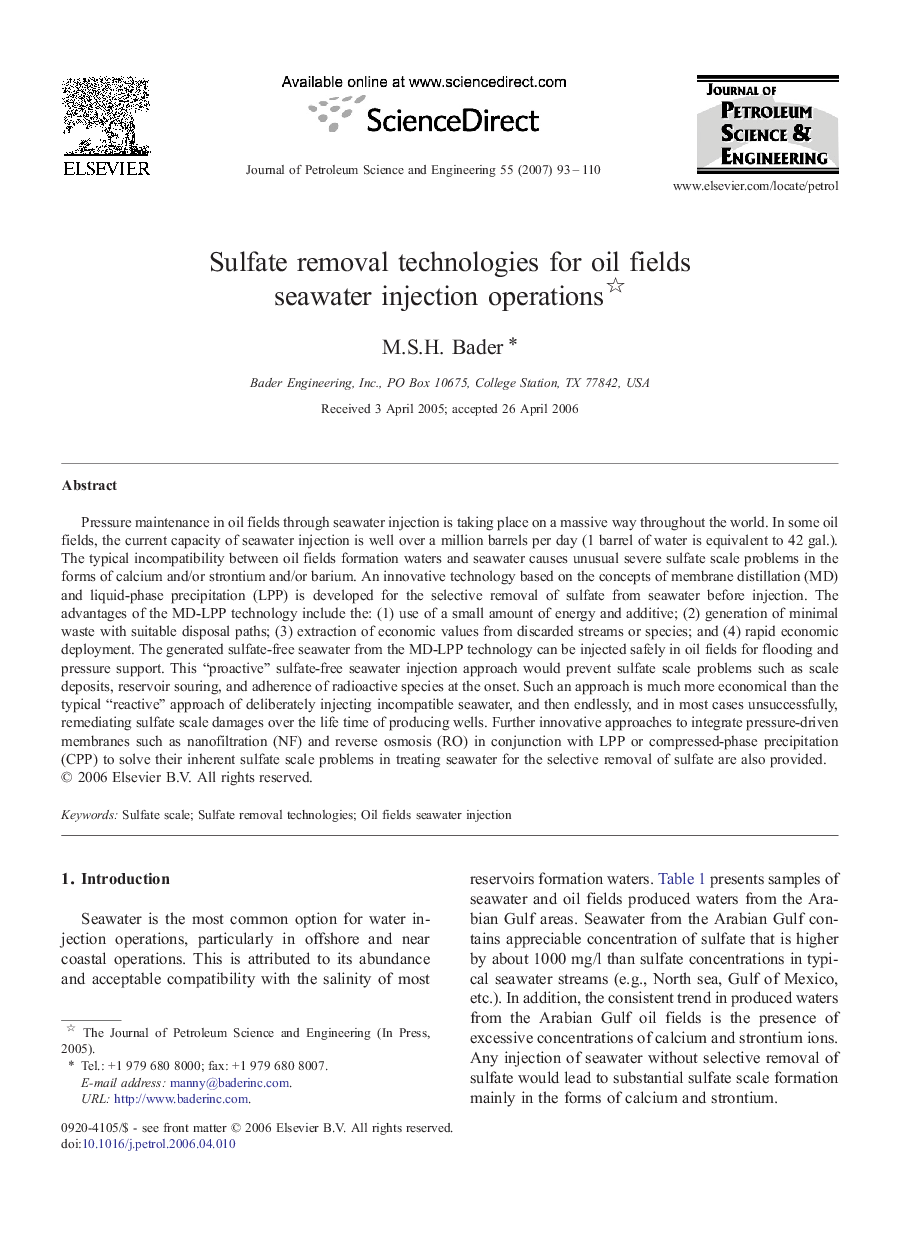| Article ID | Journal | Published Year | Pages | File Type |
|---|---|---|---|---|
| 1756300 | Journal of Petroleum Science and Engineering | 2007 | 18 Pages |
Pressure maintenance in oil fields through seawater injection is taking place on a massive way throughout the world. In some oil fields, the current capacity of seawater injection is well over a million barrels per day (1 barrel of water is equivalent to 42 gal.). The typical incompatibility between oil fields formation waters and seawater causes unusual severe sulfate scale problems in the forms of calcium and/or strontium and/or barium. An innovative technology based on the concepts of membrane distillation (MD) and liquid-phase precipitation (LPP) is developed for the selective removal of sulfate from seawater before injection. The advantages of the MD-LPP technology include the: (1) use of a small amount of energy and additive; (2) generation of minimal waste with suitable disposal paths; (3) extraction of economic values from discarded streams or species; and (4) rapid economic deployment. The generated sulfate-free seawater from the MD-LPP technology can be injected safely in oil fields for flooding and pressure support. This “proactive” sulfate-free seawater injection approach would prevent sulfate scale problems such as scale deposits, reservoir souring, and adherence of radioactive species at the onset. Such an approach is much more economical than the typical “reactive” approach of deliberately injecting incompatible seawater, and then endlessly, and in most cases unsuccessfully, remediating sulfate scale damages over the life time of producing wells. Further innovative approaches to integrate pressure-driven membranes such as nanofiltration (NF) and reverse osmosis (RO) in conjunction with LPP or compressed-phase precipitation (CPP) to solve their inherent sulfate scale problems in treating seawater for the selective removal of sulfate are also provided.
